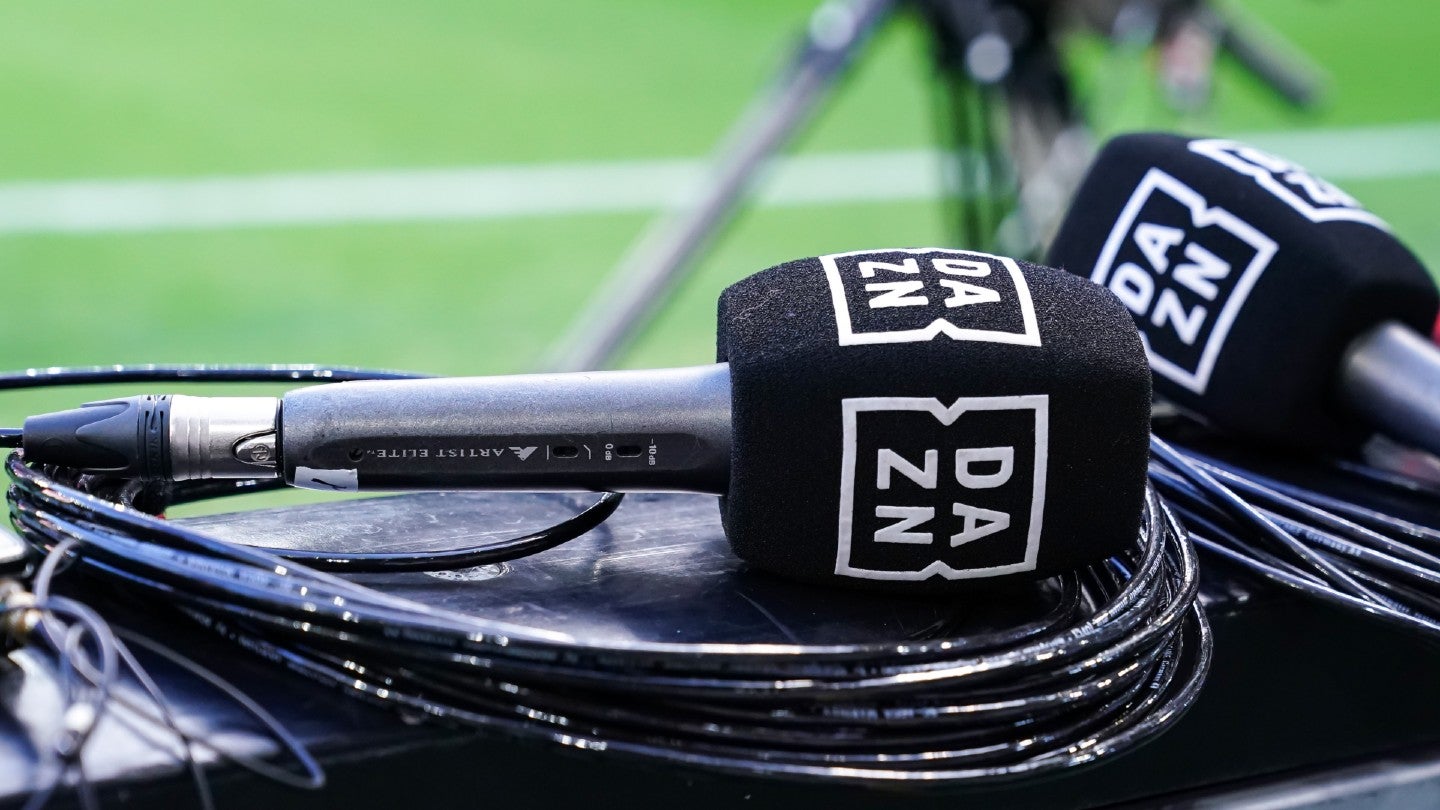
DAZN, the UK-based global sports OTT broadcaster, has posted its financial results for the 2024 calendar year, significantly reducing its losses and growing its revenue once again, but still posting a high nine-figure deficit.
Across 2024, the streamer generated $3.2 billion in revenue, up 11% from the $2.8 billion it made in 2023, a growth the streamer attributes to its revamped pricing model, an increase in paying subscribers overall, the growth in its DAZN Bet sportsbook brand, and the continued strength of the major pay-per-view boxing events that it holds rights to.

Discover B2B Marketing That Performs
Combine business intelligence and editorial excellence to reach engaged professionals across 36 leading media platforms.
This was powered, it says, by increased advertising, entry into new markets, the maturation of existing partnerships (NFL Game Pass contributing a full year of revenue as opposed to 2023), and new offerings such as French Ligue 1 soccer in France (though that has since lapsed).
Overall, the company still made a significant net loss over the year of $961.5 million, a substantial figure, but also down by almost 32% on the $1.459 billion figure it notched in 2023.
The growth in overall revenue contributed to this, as did the fall in operating costs over the period by $148 million, down primarily to a $74.1 million drop in media rights costs (accounting for $3.049 billion), and the total lack of goodwill impairment charge, which accounted for $107.9 million in 2023.
Over the past decade, DAZN has lost over $10 billion, which has been mostly underwritten by the streamer's billionaire owner, Len Blavatnik, who himself has invested billions of his personal wealth into the business.

US Tariffs are shifting - will you react or anticipate?
Don’t let policy changes catch you off guard. Stay proactive with real-time data and expert analysis.
By GlobalDataRights costs will nonetheless continue to prove a significant barrier to profitability for DAZN, while simultaneously being the cornerstone of its business model. As of December 31, 2024, DAZN stated it still has $9.8 billion (up from $9.4 billion in 2023) of media rights commitments to pay over the coming years, a figure that it says does not represent financial liability given its relationship to the company’s primary revenue stream.
Indeed, DAZN is likely to add even more rights in the future as it looks to compete with the likes of Amazon Prime Video and new sports rights entrant Netflix.
Ahead of the 2023 financial results, DAZN chief executive Shay Segev said the company is aiming to surpass $6 billion in revenue by the end of the 2025 calendar year, which would now require close to doubling its current figure over 365 days.
The 2025 financial results for the company will be aided by a number of major boosts, including the first full year of revenue derived from the firm’s purchase of Australian major linear TV operator Foxtel, announced late in 2024.
Foxtel is one of the most prominent rightsholders in the country, boasting 4.7 million subscribers and holding broadcast rights to competitions such as the Australian Football League, rugby league’s high-profile NRL, motorsports’ Formula 1, and, in a recently expanded deal, Australian domestic cricket.
The broadcaster also holds rights to top-tier cricket such as the Indian Premier League T20 competition through 2027, and operates the popular Kayo OTT service, which achieved record viewership in 2024.
Additionally, DAZN is also set to see the dividends of its exclusive FIFA Club World Cup media rights agreement, a $1 billion deal that saw the company engage in a series of global sublicensing deals with broadcasters in a swathe of different territories to enhance its distribution (and generate revenue).
The $1 billion rights fee was entirely underwritten by the $1 billion investment in DAZN by Saudi SURJ Sports Investments, the sports arm of Saudi Arabia’s Public Investment Fund (PIF), which acquired a 10% stake in the streamer in 2025, another factor that will influence DAZN’s next set of results.
Nonetheless, DAZN’s struggle remains in its ability to compete against diversified media businesses that entertain, such as film and TV, along with other benefits alongside its sports programming, whereas DAZN, solely sports-focused with a heavy priority in boxing (globally) and soccer (in certain markets), charges a similar if not larger fee for what is a less expansive offering.





